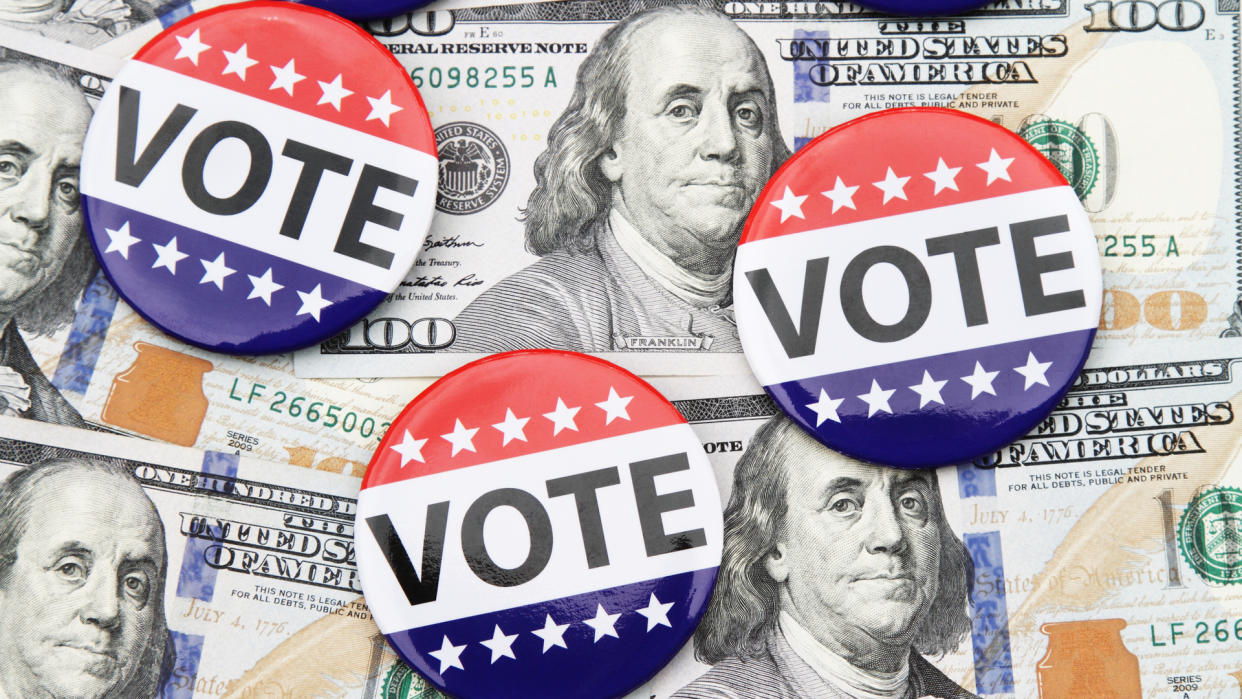How the Midterm Elections Results Could Impact Your Wallet

Midterm elections are being held on November 8 and depending on the results, with them could come a slew of changes that might impact Americans’ wallets.
See: Inflation & the Economy Are Priority for Midterm Election Voters
Find: Ahead of Midterms, Survey Finds Most Voters Want More Crypto Regulations
On Nov. 2, the Federal Reserve unanimously said it will raise interest rates by three-quarters of a percentage point rate. This is the fourth consecutive such hike, which is making debt — including credit cards and mortgages — more expensive. In addition, the four-decade high inflation is still showing no signs of abating and in turn, 84% of Americans say they are concerned about the impact of a recession on their daily finances, according to a Nov. 3 MassMutual survey.
Against this backdrop, here are some of the changes the midterms elections might impact consumers’ wallets.
Minimum Wage Hikes
Voters in Nebraska, Nevada and Washington, D.C. will decide whether to increase minimum wages or not, according to CNBC.
In Nebraska, if passed, the minimum wage would increase to $15 an hour by 2026, up from its current $9, CNBC reports. Nevada, meanwhile, would increase to $12 for all workers by 2024, from the current minimum wage of $9.50 or $10.50 an hour, CNBC added.
As for D.C., if the measure is passed, it would phase out the tipped wage, “which allows businesses to pay their workers less than the minimum wage of $16.10 if their tips make up the difference,” according to CNBC.
Social Security & Medicare
At a campaign event in Illinois this weekend, President Joe Biden said that Republicans are “coming for your Social Security and Medicare,” citing the proposal from Sen. Rick Scott, the GOP Senate campaign chairman, which would examine federal programs like Medicare and Social Security on a five-year basis, NY1 reported.
Biden also said that some Republicans intend to repeal the Inflation Reduction Act (IRA), which helps cut prescription drug costs, a financial burden for many Americans, as they pay two to three times what citizens of other countries pay for them, according to a White House fact sheet.
According to an Oct. 27 White House statement, “repealing the IRA prescription drug provisions would increase prescription drug prices by eliminating the requirement that drug companies pay rebates to Medicare when they raise prices faster than inflation, as they did for 1,200 drugs from 2021-2022. It would expose millions of Medicare beneficiaries to the risk of higher costs by eliminating the IRA’s $2,000 cap on drug costs at the pharmacy, and immediately increase Medicare beneficiaries’ costs for insulin.”
Taxes
Some Republicans are calling on making some of the provisions of the Tax Cuts and Jobs Act (TCJA) — signed into law by former President Donald Trump in Dec. 2017 — permanent. These, set to expire in 2025, would make the top individual rate of 37% permanent, as well as the section 199A deduction for pass-through businesses and the state and local tax (SALT) deduction cap, according to a notice from law firm Miller & Chevalier.
Take Our Poll: Are You Concerned That Social Security Benefits Will Be Reduced During Your Lifetime?
According to the White House statement, “these tax cuts would disproportionately benefit the wealthy. Under the Congressional Republican plan, the top 0.1 percent of Americans (with incomes over $4 million per year) would get tax cuts averaging over $110,000 per year, Tax Policy Center estimates show. That’s an annual tax cut that exceeds the typical American household’s total annual income.”
More From GOBankingRates
This article originally appeared on GOBankingRates.com: How the Midterm Elections Results Could Impact Your Wallet
